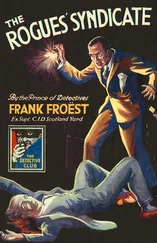'OK, point taken … so what does orca actually mean?'
' Orcinus orca , their full scientific name, means from the realm of the dead . I've no idea were it came from'.
'You said there were three types of orca here.'
Anawak pointed out to sea. 'Offshore orcas. We don't know much about them but they come and go, mostly in big groups, and tend to live a long way out. Transient orcas are nomadic and live in smaller pods. They come closest to your idea of a killer whale. They'll eat anything they can get their teeth into – seals, sea-lions, dolphins and birds. They'll even attack blue whales. In areas like this, where the coast is rocky, they stay in the water, but in South America they'll haul themselves on to the beach to hunt seals and other animals. It's amazing to watch.'
He paused, but she didn't speak so he went on: 'The third type lives in the waters around the island in large family groups. How well do you know the island?'
'A little.'
'To the east there's the Johnstone Strait, a channel of water separating it from the mainland. Resident orcas live there all year round. They only eat salmon. We've been monitoring their social behaviour since the 1970s -' He stopped. 'Why am I telling you all this?'
She laughed. 'I'm sorry, I got you sidetracked. And I'm curious. You were trying to explain which whales have vanished and which are still here.'
'That's right. But-'
'You're busy.'
Anawak glanced at his notebook and laptop. His paper had to be finished by tomorrow but. . . 'Are you staying at the Wickaninnish Inn?' he asked.
'Yes.'
'Do you have plans for the evening?'
'Oh!' She grinned. 'The last time anyone asked me that was ten years ago.'
He grinned back. 'I was thinking of my belly. I thought we could talk more over dinner.'
'Good plan.' She slid off the tree-trunk, stubbed out her cigarette and dropped the butt into her pocket. 'I warn you, I always talk with my mouth full. By the way,' she held out her hand, I'm Samantha Crowe. Call me Sam.'
'Leon Anawak.'
SITUATED ON A ROCKY promontory at the front of the hotel, the restaurant commanded an impressive view of Clayoquot Sound and the islands, with the bay and the temperate rainforest behind it. Anawak and Croupe sat at a table by the window – which would have been perfect for whale-watching, if there'd been anything to see.
'The problem,' Anawak said, 'is that the transients and the offshore orcas haven't shown up. There are still large numbers of residents, but they don't like the west of the island, even though living in the Johnstone Strait is starting to get uncomfortable for them.'
'Why?'
'How would you feel if you had to share your home with ferries, cargo ships, liners and sport-fishing vessels? Besides, the region lives off the timber industry and entire forests are being transported to Asia. Once the trees are gone, the rivers fill with silt, the salmon lose their spawning grounds and the resident orcas have nothing to eat.'
'It's not just the orcas you're worried about, though, is it?'
'The grey whales and humpbacks are a major headache. They usually reach Vancouver at the beginning of March by which stage they won't have eaten for months. During the winter, in Baja California, they live off their blubber, but they can't do that forever. It's only when they get here that they eat again.'
'Maybe they've gone further out to sea.'
'There's not enough for them to eat out there either. Here in Wickaninnish Bay, for instance, the grey whales find a key source of nutrition that they can't get in the ocean. Onuphis elegans !
' Elegans ? Sounds lovely.'
Anawak smiled.
'It's a long, thin worm. The bay is nice and sandy, which suits the worms, and the grey whales love them. Without little snacks like that they'd never make it to the Arctic' He took a sip of his water. 'In the mid-1980s things were so bad that the whales didn't stop here. But that was because hardly any were left – they'd been hunted almost to extinction. Since then we've managed to raise their numbers but there are only about twenty thousand grey whales in the world, and you should find most of them here.'
'But this year they haven't come?'
'The residents are here, but they're just a minority.'
'And the humpbacks?'
'Same story.'
'You said you were writing a paper on beluga whales.?'
'Isn't it time you told me something about yourself?' Anawak asked.
'You already know the most important stuff – that I'm an old busybody who asks too many questions,' she said.
The waiter appeared with their main course: grilled king prawns on saffron risotto.
'OK, but what kind of questions, to whom and why?'
Crowe started peeling a garlicky prawn. 'It's simple, really. I ask, "Is anybody out there?"
'And what's the response?'
'I've never had one.'
'Maybe you should ask a bit louder,' said Anawak.
'I'd love to,' said Crowe, between mouthfuls, 'but right now our technological capacity limits me to a period of about two hundred light years. It didn't stop us analysing sixty billion signals during the mid-1990s. We narrowed them down to just thirty-seven that couldn't be matched with any natural phenomenon. Thirty-seven signals that might have been someone saving hello.'
Anawak stared at her. 'You work for SETI,' he said.
'Yep. ' The Search for Extra-terrestrial Intelligence. Project Phoenix , to be exact.'
'And you're listening to signals from space?'
'We target stars similar to our sun – a thousand of them, each more than three billion years old. There are other projects like it, but ours is the crucial one.'
'Well, I'll be damned.'
'It's not that amazing. You analyse whalesong and try to figure out what they're telling each other. We listen to noises from space because we're convinced that the universe is packed with civilizations. I expect you're having more luck with your whales.'
'I'm dealing with a few oceans. You've got the universe.'
'It's on a different scale, but I'm always being told that we know less about the oceans than we do about space.'
'And you've intercepted signals that indicate the presence of intelligent life?'
She shook her head. 'No. We've found signals we can't place. The chance of making contact is remote, almost beyond all probability. So, I should really throw myself off the next bridge in frustration. But the signals are my obsession. Like you and your whales.'
'At least I know they exist.'
'Not right now you don't.' Crowe smiled.
Anawak had always been interested in SETI. The institute's research had begun in the early 1990s when NASA had funded a targeted search for extra-terrestrial life on nearby stars – timed to coincide with the five-hundredth anniversary of Columbus's arrival in the New World. As a result, the world's largest radio telescope, in the Puerto Rican town of Arecibo, had embarked on a new kind of observation programme. Thanks to generous private sponsorship, SETI had since been able to set up other projects across the globe, but Phoenix was probably the best known.
'Are you the woman Jodie Foster plays in Contact ?
I'm the woman who'd like to take a ride in her spaceship and meet the aliens. You know what, Leon? I don't usually tell this stuff to anyone – I want to run away screaming when people ask me what I do. I can't bear having to explain myself.
'I know the feeling.'
'Anyway, you told me what you do, so now it's my turn. What do you want to know?'
Anawak didn't take long to consider. 'Why hasn't it worked?'
The question seemed to amuse her. 'What makes you think it hasn't? The Milky Way is made up of roughly a hundred billion stars. Trying to establish whether any of them is anything like the Earth is tricky because they don't emit enough light. We can only find out about them by using scientific tricks. Theoretically they're everywhere. But you try listening for signals from a hundred billion stars!'
Читать дальше












